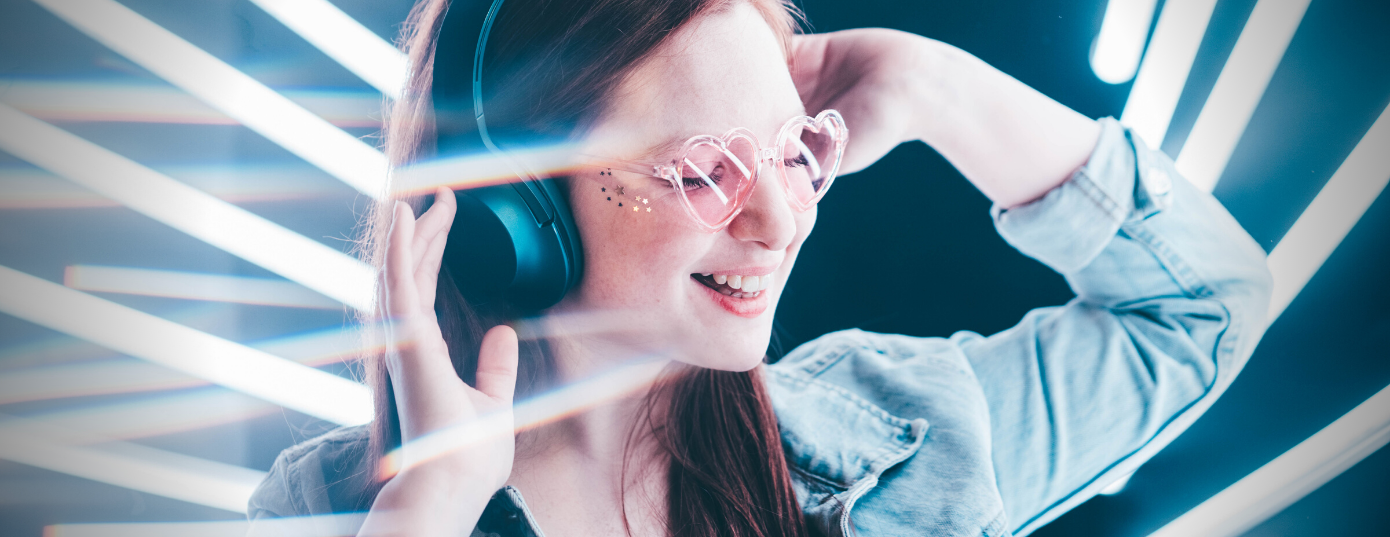The festivities for diehard music fans are not over because it’s about to be that time of the year with the Grammys just around the corner! In honor of the 65th Annual Grammy Awards, let’s talk about why music and weed are the OTP (One True Pairing) of all time.
It’s no secret that weed and music often go hand in hand. There’s dozen of documentaries and films where the world’s greatest musicians like The Beatles, legendary Bob Marley and country princess Kacey Musgraves have been seen –or have been brutally honest about– smoking up their favorite herb before or while writing music. Shall we find out why?
Your Brain And Cannabis: Explained
The human brain is a world of its own, full of wonders and inquiries that contain a source of vast knowledge. Add cannabis to the mix and we’re sure to find a mystifying place. It’s no surprise that there is still ongoing research about the relationship between the creative process and cannabis, which is a very complex one.
While there’s still a long road to explore, studies suggest that cannabis can have a positive effect on creativity by altering the way the brain processes information. Consequently, it increases divergent thinking, which is the ability to come up with many different ideas.
In fact, a study from the University of London found that the cannabis plant can lead to an increase in the number of connections between the different parts of the human brain. This process is most likely to have our precious brains diving into a free flow zone, where spontaneous thoughts are easily found. Creative fields of work such as music, art and writing usually require the previously mentioned characteristics; therefore, a lot of artists reach out to cannabis to allow their minds to come up with new and unique ideas.
Another incredible, useful trait of cannabis that you might already know is that it has the ability to reduce anxiety and stress, two of the main obstacles for a lot of people (myself included) when they’re trying to be creative. Cannabis, in any of its forms, can help people relax, focus and be more open minded. This process allows them to let go of self-consciousness, hence tapping into a deeper level of creativity where there is no judgment, only free thoughts.
As you may know, cannabis has been used for centuries as a medicine for several ailments. In recent years, it has been used to help people with conditions like anxiety, depression, and chronic pain. It’s no surprise that the previously mentioned conditions can be very detrimental to the creative process; luckily, cannabis can help to soothe them, allowing a more conducive environment for creativity.
It’s important to mention that cannabis can have lots of different effects on different people, so you can’t expect someone to thrive in the same cannabis dose as you do. Plus, weed is not a one size fits all solution. And additionally, the moral views of each person may vary a lot. While some people might find cannabis to be helpful for their creative process, others might find it to be distracting, unhelpful or even disrespectful to their creative self and their creative process.
Cannabis And Music: Do You Enjoy Music More When You’re High?
Ever been at a concert or a music festival and suddenly got a whiff of weed? It doesn’t matter that the genre is, stoners will most likely be there, have a hit, and enjoy the ride. But why is that?
Although there is some research on the relationship between cannabis use and the enjoyment of music, not much has been published about it. However, scientists who have studied this subject have confirmed that cannabis use increases the intensity and pleasure of music, as well as enhances the emotional and vividness of the music experience. The speculation lands on two things: perception and time.
Dr. Jörg Fachner, professor of music, health, and the brain at Anglia Ruskin University in Cambridge, told Vice that marijuana works like a psycho acoustic enhancer, meaning that the listener will be able to absorb the music, focus on something and have a bit of a broader spectrum.
“It doesn't change the music; it doesn't change the ear functioning. Obviously it changes the way we perceive ear space in music. It also changes time perception, and if you listen to music, it is a time process, so if you have a different time perception of course you will listen differently to music.”
Dr. Zach Walsh, professor of psychology at the University of British Columbia, explained that cannabis improves all types of things that are related to being present in the moment, as opposed to long term planning, worrying, ordering and organizing.
This is thought to be due to the way that cannabis interacts with the endocannabinoid system in the brain, which plays a role in regulating mood, perception, and other cognitive processes.
How Does Cannabis Affect the Brain?
Our bodies are able to interact with weed thanks to our endocannabinoid system, which is a network of receptors that is involved in regulating several psychological processes such as our mood, our appetite, and pain perception. This is where the famous THC shows up: tetrahydrocannabinol, the main psychoactive component of cannabis, which binds to these receptors that lead to changes in the human brain activity and their behavior.
And this is where we get a little bit scientific, but bear with me, alright? I promise it’s all worth it. When THC binds to the CB1 receptors in the brain, it can lead to an increase in the release of the neurotransmitter dopamine, which is a natural chemical which is associated with feelings of pleasure and reward. You’ve probably heard about this but humans thrive on dopamine. So this process can actually lead to an increase in the number of connections between different parts of the brain, meaning that our thinking muscle is way more active and way more open to new connections.
THC is believed to enhance the communication between different regions of the brain, including the hippocampus, the prefrontal cortex, and the amygdala. The receptors interact directly with cannabis in the previously mentioned areas of our brain, which are involved in different aspects of cognition such as memory, attention and emotional processing. All these increased connections translate to communication between different parts of the brain, allowing our minds to wander freely, originally, and without stressing over every little thing.
It is no wonder why many artists choose to work under the influence, expanding their connections and leaving all of their self-consciousness outside the door. There is no room for embarrassment anymore, a lot of Grammy Award Winners and Nominees have been open about incorporating weed in their creative process. Light some of your favorite strain and get ready for the Grammys 2023!
Author: Mary Jane
Mammoser, G. (2016) We Asked Some Experts Why Weed and Music Go So Well Together, Vice. Retrieved from https://www.vice.com/en/article/3dea3k/420-music-weed-expert


0 comments